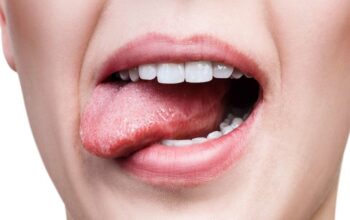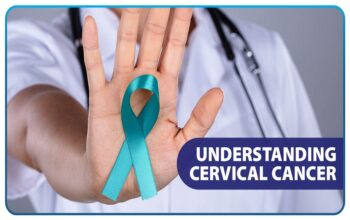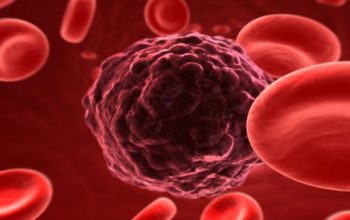In an era of information overload, distinguishing fact from fiction is more important than ever, especially when it comes to health. Breast cancer, one of the most frequently discussed medical conditions, is surrounded by numerous myths and misconceptions. These myths can lead to unnecessary fear, improper screening practices, and potentially harmful health decisions. This article aims to debunk some of the most common myths about breast cancer and provide accurate information to help you stay informed and healthy.
Only Women Can Get Breast Cancer
A widespread belief is that breast cancer only affects women. While it is true that breast cancer is much more common in women, men are not immune to this disease. Men have a small amount of breast tissue and cancer can develop there, although the rate of incidence is vastly lower.
The Truth
Men can develop breast cancer, albeit at a significantly lower rate than women. Recognizing that breast cancer is not exclusive to women is crucial for early detection and treatment in men. Symptoms in men can include lumps, skin dimpling, nipple retraction, or discharge. Due to the lack of awareness, men often delay seeking medical advice, leading to a diagnosis at a more advanced stage.
Breast Cancer Always Presents as a Lump
Many people assume that a lump in the breast is the sole indicator of breast cancer. While a lump can indeed be a sign, it is not the only one. Breast cancer can manifest through various symptoms, and relying solely on the presence of a lump can lead to delayed diagnosis and treatment.
The Truth
Breast cancer can present itself in multiple ways, including skin changes, nipple discharge, swelling, and pain. For example, some women may notice dimpling of the breast skin, which resembles the texture of an orange peel, or experience an inward-turning nipple. Other symptoms of early breast cancer can include redness, scaliness, or thickening of the nipple or breast skin. It is essential to recognize and report any unusual changes to a healthcare provider.
Mammograms Cause Cancer to Spread
A prevalent myth is that the compression of the breast during a mammogram can cause cancer cells to spread. This misconception has caused some women to avoid mammograms, potentially missing early detection opportunities. As with any screening system involving x-rays, there is some risk of carcinogenesis, but modern techniques are lower risk than ever before and the overall chance is exceedingly small.
The Truth
Mammograms are a critical tool in detecting breast cancer early when it is most treatable. The benefits of regular mammograms far outweigh any minimal risk associated with the procedure. The American Cancer Society states that the pressure applied during a mammogram is not sufficient to cause cancer cells to spread. Regular mammograms can help detect cancer before it can be felt and when it is easier to treat.
Breast Cancer Is Always Hereditary
Many people believe that breast cancer is primarily a genetic disease, passed down through family lines. While genetics can play a role, they are not the sole factor.
The Truth
Most breast cancers are not hereditary. Only a small percentage of breast cancer cases are linked to inherited genetic mutations. The majority of breast cancer cases occur due to a combination of lifestyle, environmental factors, and random mutations. This highlights the importance of regular screenings for all women, regardless of family history. Factors such as age, reproductive history, hormonal factors, and lifestyle choices also play significant roles in breast cancer risk. Understanding that breast cancer is multifactorial can help individuals take a more comprehensive approach to prevention and detection.
Antiperspirants and Deodorants Cause Breast Cancer
There has been considerable debate about the potential link between antiperspirants and breast cancer. Some believe that the chemicals in these products, particularly aluminum compounds, can cause cancer by being absorbed through the skin or entering the body through nicks from shaving.
The Truth
No scientific studies have conclusively linked antiperspirants or deodorants to breast cancer. Research conducted by reputable organizations has found no evidence supporting this claim. While it is always a good idea to be cautious about the products we use, the fear surrounding antiperspirants and breast cancer is unfounded. The American Cancer Society and the National Cancer Institute have both stated that there is no conclusive evidence connecting antiperspirants or deodorants with breast cancer. Understanding the sources and reviewing scientific literature can help dispel unnecessary fears.
Small-Breasted Women Are Less Likely to Get Breast Cancer
There is a common misconception that breast size affects the likelihood of developing breast cancer. Some believe that women with smaller breasts are at a lower risk.
The Truth
Breast size does not influence the risk of developing breast cancer. Cancer can develop in the breast tissue of any size. Regular screenings and self-examinations are essential for all women, regardless of breast size. Breast density, which refers to the amount of fibrous and glandular tissue compared to fatty tissue, can affect mammogram readings but is not related to breast size. Understanding that breast cancer risk is not determined by breast size can encourage all women to be vigilant about their breast health.
Conclusion
Misinformation about breast cancer can lead to unnecessary fear and potentially harmful health decisions. By debunking these common myths, we hope to provide a clearer understanding and encourage informed decision-making regarding breast health. Regular screenings, awareness of symptoms, and understanding the facts about breast cancer are vital steps in prevention and early detection. Remember, knowledge is power, and staying informed is the best way to protect your health.




